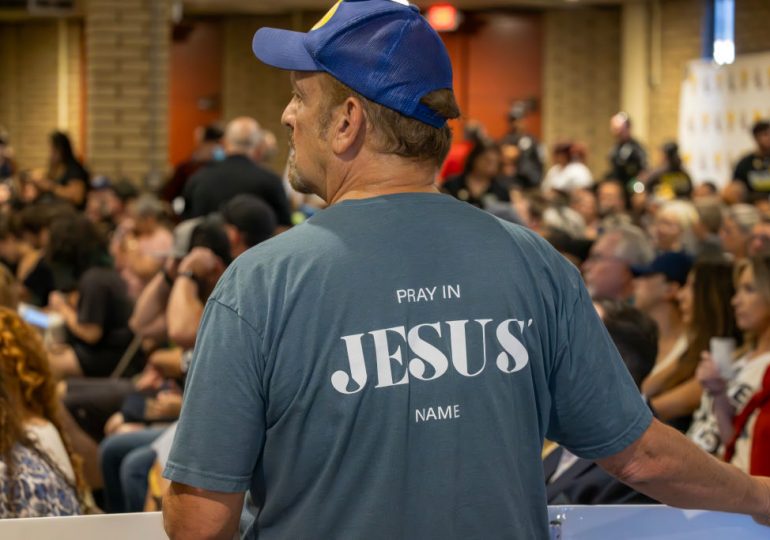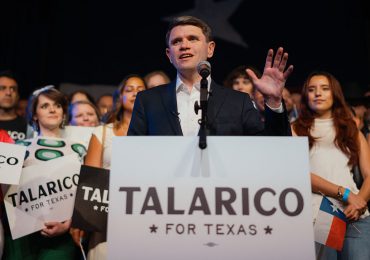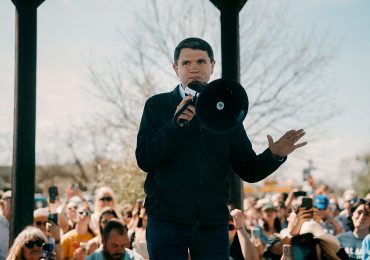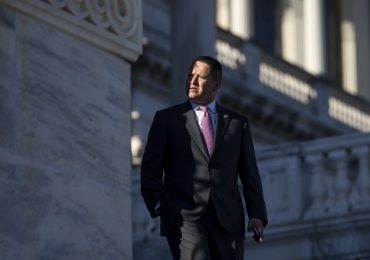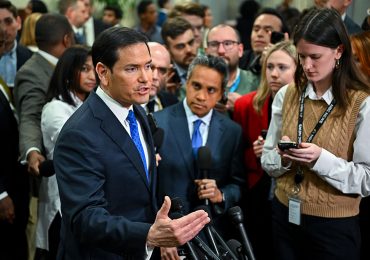[time-brightcove not-tgx=”true”]
America is secularizing. The evidence is clear. The question of why is a little more murky. And for American Christians, one likely cause should be sobering—especially during election season.
First, the facts. According to data from Gallup, Pew, and PRRI, the percentage of Americans who identify with any religion is in steady decline, as are those who believe in God, the devil, Heaven, Hell, or angels; who say religion is a very important part of their life; maintain membership in a church or synagogue; or attend church regularly.
In fact, Americans are increasingly aware of religion’s waning cultural authority. Since 2010, Gallup shows nearly 74% of Americans on average believe religion is losing its influence on American life. Over the previous ten years, that average was closer to 55%.
What’s driving religion’s declining influence?
In truth, no single entity or factor gets all the blame (or credit, depending on how you feel about the situation). Not directly, anyway.
Economic prosperity and functional governance (both wonderful things) can weaken our felt need for religious resources. For example, much of what religious institutions historically provided America’s citizens—education; counseling; support for the needy; marriage options; entertainment; and explanations for how the world works—are increasingly provided by the state and the market. Church participation has become more optional, just one more activity middle-class families do in the suburbs—or not.
Another factor is simply the inevitable consequence of living in an increasingly cosmopolitan, multiracial democracy where liberal values of tolerance are celebrated. Diverse neighborhoods, schools, and civic institutions force us to confront the reality that there are wonderful people out there who don’t share our religious beliefs. Our children will be friends with one another, maybe even spouses. Rising generations find the divisive dogma of many religious groups increasingly strange, if not offensive.
But there is another factor at work. Not all the secularizing trends we see are inevitable. Beyond the prosperity, pluralism, and busyness of our modern lives, other dynamics are driving Americans away.
For the past few decades, sociologists and political scientists have demonstrated across multiple studies that as Christianity has become increasingly aligned with right-wing conservatism and the Republican Party, Americans who might have otherwise identified as Christians on surveys are now identifying as “nothing in particular” or “none.” The conclusion many seem to be drawing is “If this is what it means to be religious, count me out.”
This is particularly the case among young people, who often hold left-leaning political views. In their award-winning book Secular Surge, Notre Dame political scientist David E. Campbell and his co-authors used experiments to show that when young Americans who leaned toward the Democratic party were shown examples of politicians making Christian nationalist statements or pastors endorsing conservative political candidates, those young people were more likely to disaffiliate from religion. They literally changed their religious identity to nothing. This seems to be happening on a larger scale around the country.
But the connection between religion and politics works in the opposite direction as well, and ultimately not for the benefit of religion itself.
Studies are showing political conservatives are increasingly like to identify with religion often because of what it implies politically. For example, political analyst Gregory Smith at Pew Research Center found that between 2016 and 2020, more white Americans began to identify with the label “White Evangelical.” But when he explored who started identifying this way, it was almost exclusively Trump supporters. In other words, more white Americans were being drawn to identify as “White Evangelical,” not because of a born-again religious conversion, but because the label itself has evolved to mean something like “pro-Trump, traditional-values conservative.”
This is another way that politics has driven secularization. On the one hand, the association between right-wing politics and religion is demonstrably driving young progressives away from identification with religion. But it is also secularizing religious identities themselves. As political scientist Ryan Burge has shown, the category of White Evangelical increasingly contains Americans who rarely or never attend church. Being a conservative Christian, in other words, is rapidly becoming less about theological beliefs or religious practice, but rather a commitment to partisanship and political ideology.
Ultimately, there is little that devoutly religious Americans can do about broader secularizing forces. In this regard, the United States is following the religious trajectory of Western Europe, just 50 or so years behind. But the reactionary backlash to religion’s waning influence, combined with the growing identification of religious conservatism with right-wing politics could resurrect something else—ethno-religious nationalism.
This is what we see in Putin’s Russia, for example. In recent decades, the percentage of Russians who identify with Russian Orthodoxy has grown. But closer scrutiny by Pew Research Center shows that resurgence doesn’t reflect a rise in religious practices like church attendance and prayer, but instead nationalistic fervor, ethnocentrism, and a fondness for the old Soviet Union and Stalin.
American Christians who are concerned about the future of their faith should take warning. Planting your beloved faith in the welcoming soil of partisan politics is like burying your loved one in Stephen King’s Pet Cemetery. What returns is neither living, nor dead, but something else entirely. Potentially the stuff of horror movies.
Leave a comment
